
Oran Coast: Algeria's Mediterranean Gem
The Oran Coast is a stunning stretch of Mediterranean shoreline that promises visitors a blend of natural beauty, cultural richness, and historical intrigue. Located in the northwestern part of Algeria, this coastal region boasts golden sandy beaches, turquoise waters, and a pleasant Mediterranean climate that makes it an ideal destination year-round. Oran, the second-largest city in Algeria, is the heart of this coastal area. The city’s vibrant atmosphere, lively music scene, and rich history make it a must-visit. Discover the historical sites such as the Santa Cruz Fort, which offers panoramic views of the city and sea, and the Great Mosque of Oran with its stunning architecture. The city is also famous for its Raï music, a genre that originated here and reflects the soul of its people. Alongside the urban attractions, the Oran Coast is dotted with picturesque beaches such as Les Andalouses and Cap Falcon, perfect for sunbathing, swimming, and water sports. The coastal road offers breathtaking views and is ideal for a scenic drive. For a taste of local life, visit the bustling markets and try traditional Algerian cuisine, including fresh seafood and the delicious local dish, chakhchoukha.
Local tips in Oran Coast
- Visit in spring or autumn for the best weather and fewer crowds.
- Learn a few basic French or Arabic phrases; it will help you communicate better with locals.
- Don’t miss the Raï music performances; they are a unique cultural experience.
- Try the local seafood dishes at the coastal restaurants for a true taste of Oran.
- Bring comfortable walking shoes for exploring the historical sites and markets.
Oran Coast: Algeria's Mediterranean Gem
The Oran Coast is a stunning stretch of Mediterranean shoreline that promises visitors a blend of natural beauty, cultural richness, and historical intrigue. Located in the northwestern part of Algeria, this coastal region boasts golden sandy beaches, turquoise waters, and a pleasant Mediterranean climate that makes it an ideal destination year-round. Oran, the second-largest city in Algeria, is the heart of this coastal area. The city’s vibrant atmosphere, lively music scene, and rich history make it a must-visit. Discover the historical sites such as the Santa Cruz Fort, which offers panoramic views of the city and sea, and the Great Mosque of Oran with its stunning architecture. The city is also famous for its Raï music, a genre that originated here and reflects the soul of its people. Alongside the urban attractions, the Oran Coast is dotted with picturesque beaches such as Les Andalouses and Cap Falcon, perfect for sunbathing, swimming, and water sports. The coastal road offers breathtaking views and is ideal for a scenic drive. For a taste of local life, visit the bustling markets and try traditional Algerian cuisine, including fresh seafood and the delicious local dish, chakhchoukha.
When is the best time to go to Oran Coast?
Iconic landmarks you can’t miss
Fort of Santa Cruz
Explore the historic Fort of Santa Cruz in Oran, offering panoramic views and a glimpse into Algeria's rich, multi-layered past. A must-see landmark!
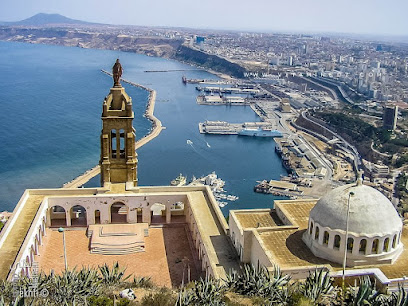
Oran sea front
Experience the vibrant heart of Oran along its picturesque Sea Front, offering stunning views, cultural experiences, and delicious local cuisine.
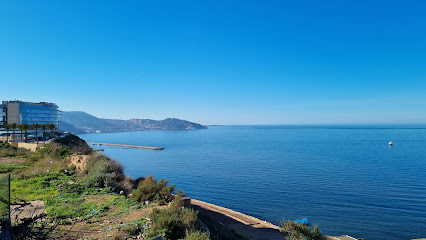
Canastel Forest
Escape to Canastel Forest in Oran: Hike scenic trails, picnic amidst nature, and discover tranquility in Algeria's green oasis.
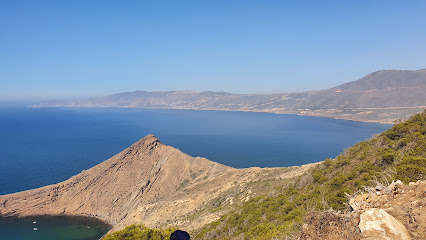
Bey's Palace
Explore Bey's Palace in Oran: a majestic museum showcasing Ottoman architecture and Algeria's rich cultural heritage.
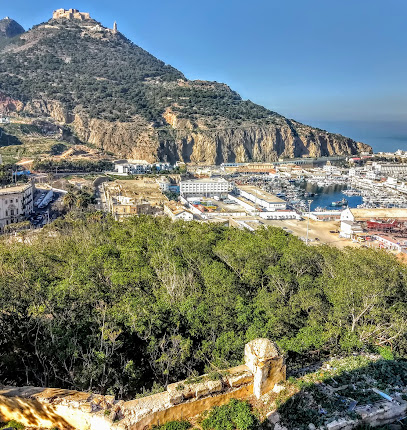
Ahmed Zabana National Museum
Explore Algerian history and culture through ancient artifacts, Islamic art, and compelling exhibits at the Ahmed Zabana National Museum in Oran.
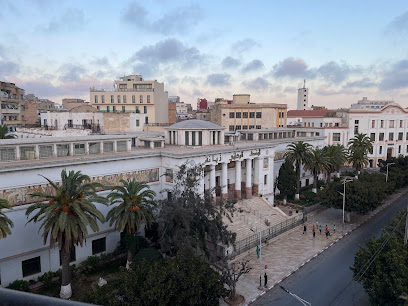
Oran Arena
Explore Oran Arena, a historical landmark blending Moorish and Spanish architecture, hosting cultural events and offering a glimpse into Oran's rich heritage.
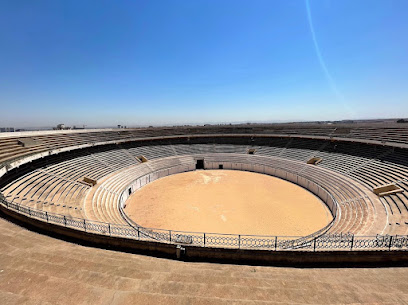
Abdullah Bin Salem Mosque
Explore the Abdullah Bin Salem Mosque in Oran, a historical site blending Jewish and Islamic heritage through stunning Moorish architecture.
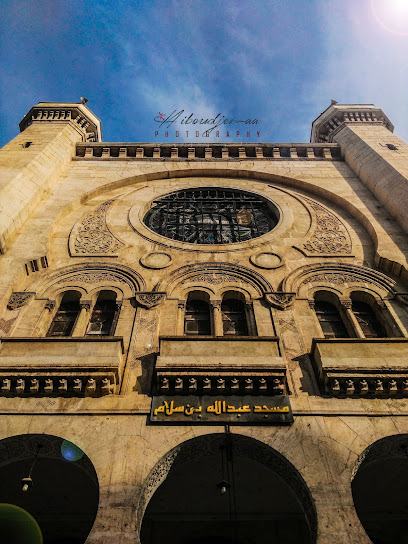
Place du 1er Novembre
Experience the vibrant heart of Oran at Place du 1er Novembre, a historic square surrounded by stunning architecture and bustling city life.
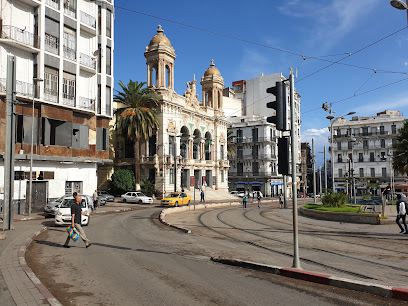
Oran Seafront
Experience the vibrant charm of Oran at its Mediterranean Seafront: stunning views, cultural richness, and Algerian hospitality await!
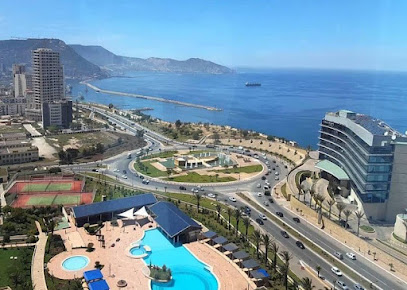
The Town Hall Place d'Armes
Discover Oran's historical heart at the Town Hall Place d'Armes, a vibrant hub where culture, architecture, and local life converge.
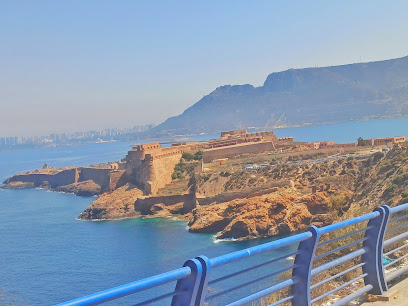
Cathedral of the Sacred Heart of Oran
Discover Oran's architectural gem, the Cathedral of the Sacred Heart, a former church turned library, reflecting Algeria's colonial past and cultural blend.
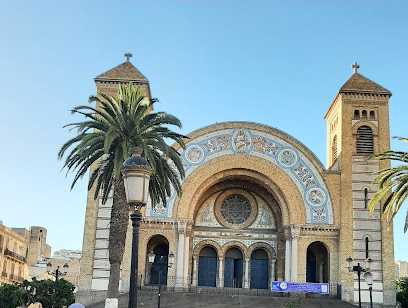
حديقة إبن باديس
Escape to Oran's historic Ibn Badis Garden for serene beauty, lush landscapes, and stunning Mediterranean views. A tranquil retreat in the city.
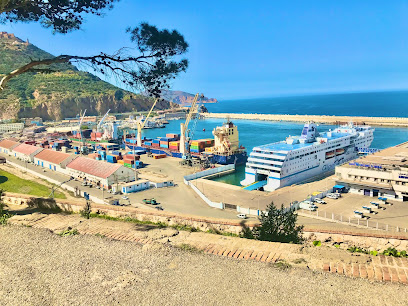
Porte du Santon
Explore the historic Porte du Santon in Oran, a Spanish-built gate offering a glimpse into the city's colonial past and strategic importance.
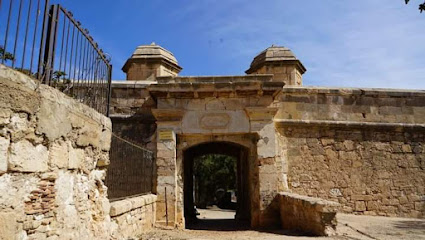
Joan of Arc Square
Discover Oran's charm at Joan of Arc Square: a serene escape steeped in history and culture, perfect for relaxation and local experiences.
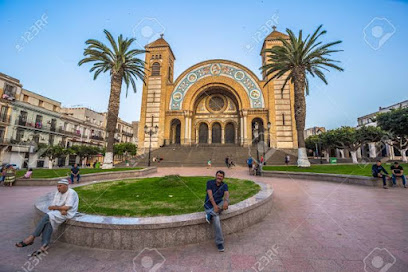
Gulf of Oran
Discover the Gulf of Oran: where stunning Mediterranean beauty meets rich Algerian culture and history. A coastal paradise awaits!
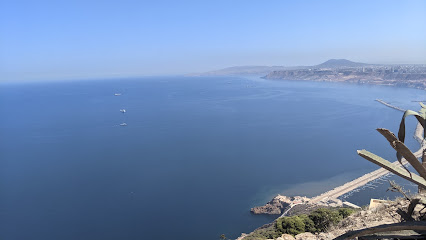
Unmissable attractions to see
Sidi M'Cid Bridge
Discover the stunning Sidi M'Cid Bridge in Constantine, Algeria - an architectural masterpiece offering breathtaking views and rich history.
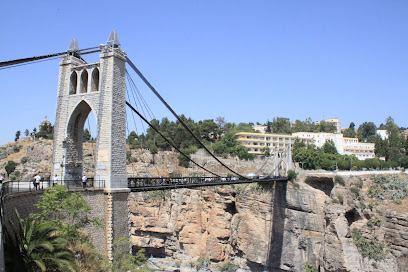
Leisure Park Lalla Setti
Experience panoramic views, thrilling rides, and natural beauty at Tlemcen's hilltop amusement park, Leisure Park Lalla Setti.
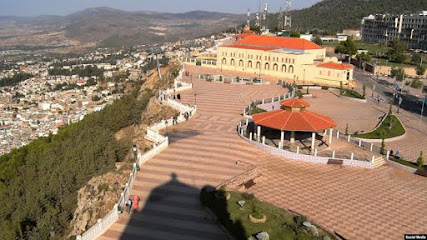
Dream paradise park Oran
Experience thrilling rides & joyful moments at Dream Paradise Park, Oran - the perfect destination for family fun and adventure!
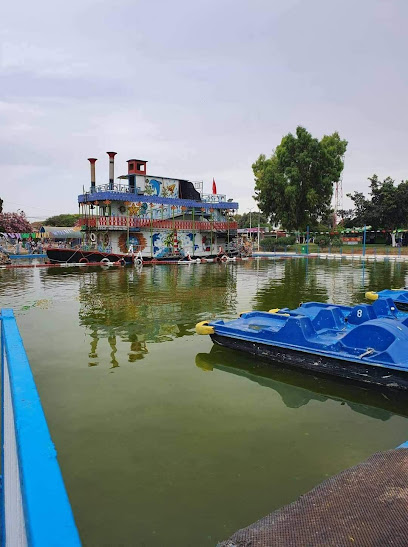
Oran Zoo
Discover diverse wildlife in a family-friendly setting at Oran Zoo, a conservation-focused escape in the heart of Oran, Algeria.
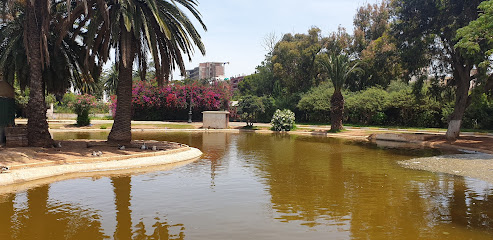
Canastel Forest
Discover tranquility in Oran's Canastel Forest: trails, views, and a peaceful escape from the city's hustle.
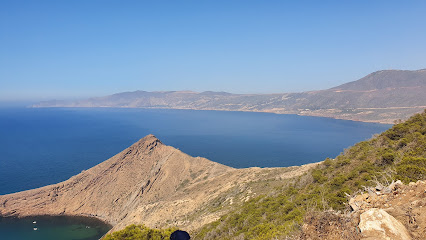
Ahmed Zabana National Museum
Explore Algeria's history and culture at the Ahmed Zabana National Museum in Oran, from ancient artifacts to the independence movement.
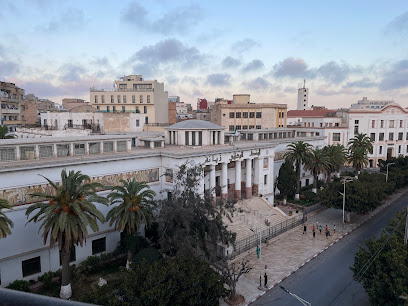
Pacha Mosque
Discover the Pacha Mosque in Oran: A historic landmark blending Ottoman architecture and Islamic heritage in the heart of Algeria.
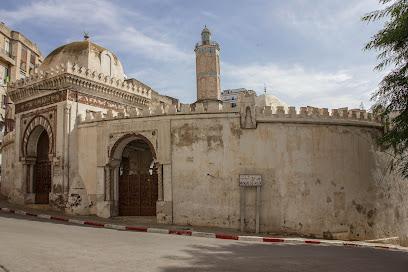
Porte du Santon
Explore the historic Porte du Santon in Oran, a Spanish-built gate offering a glimpse into Algeria's rich cultural and military past.
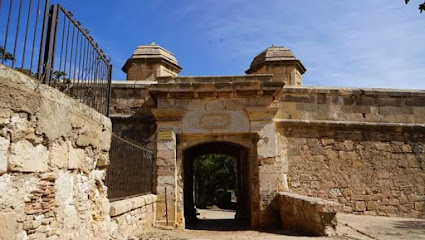
Place Jeanne d'Arc
Discover Place Jeanne d'Arc in Oran: A cultural crossroads where history, architecture, and vibrant local life create an unforgettable experience.
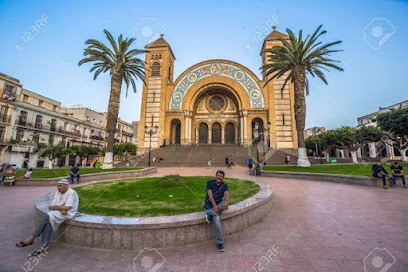
Coast plage
Discover Coast Plage in Bou Sfer, Algeria: a serene escape with golden sands, clear waters, and stunning Mediterranean views.
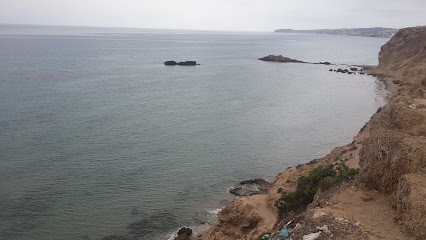
Les balcons d’Oran
Experience breathtaking panoramic views of Oran and immerse yourself in the vibrant local culture at Les Balcons d'Oran.
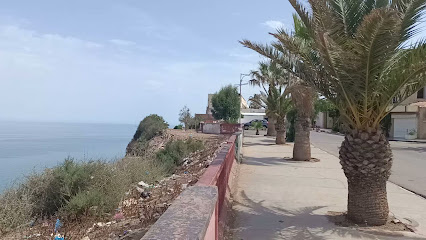
Oran Wild
Discover Oran Wild: A captivating blend of nature and culture in Oran, Algeria, offering a serene escape and memorable experiences for all ages.
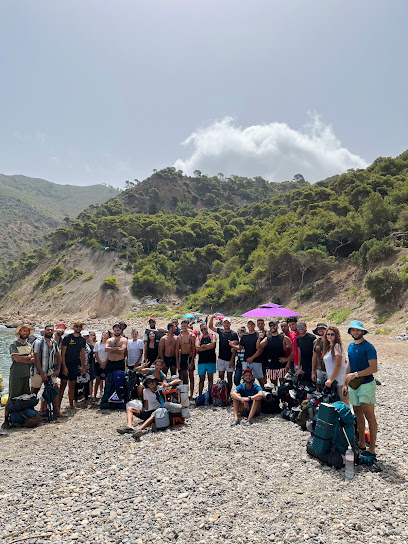
Essential places to dine
Arabesque Restaurant
Discover authentic Algerian cuisine at Arabesque Restaurant in Oran—perfect for families and food lovers alike!
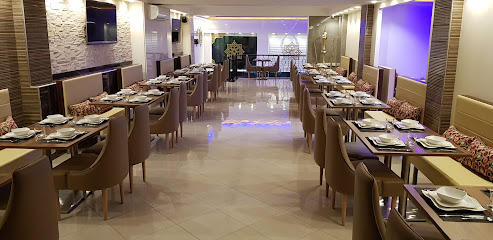
Maharaja Indian Restaurant, Courbet,Oran
Experience authentic Indian flavors at Maharaja Indian Restaurant in Oran - where every dish tells a story.
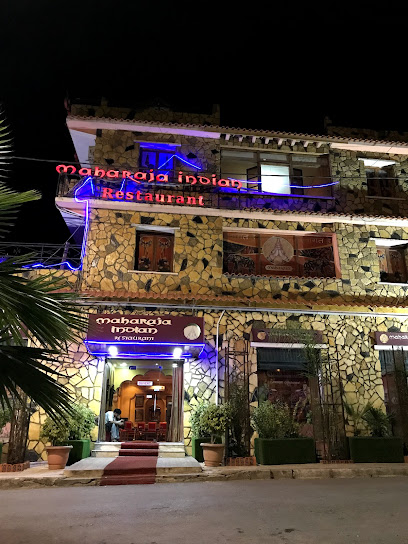
El Firdaous
Experience the rich flavors of Algeria at El Firdaous in Oran – where every dish tells a story.
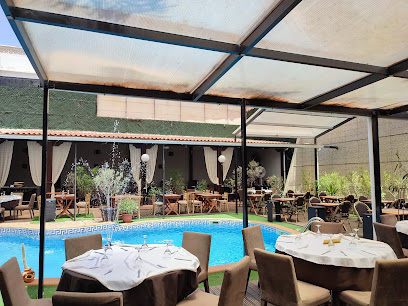
Resturant Bab El Hara
Experience the essence of Algeria through delicious dishes at Restaurant Bab El Hara in Oran.
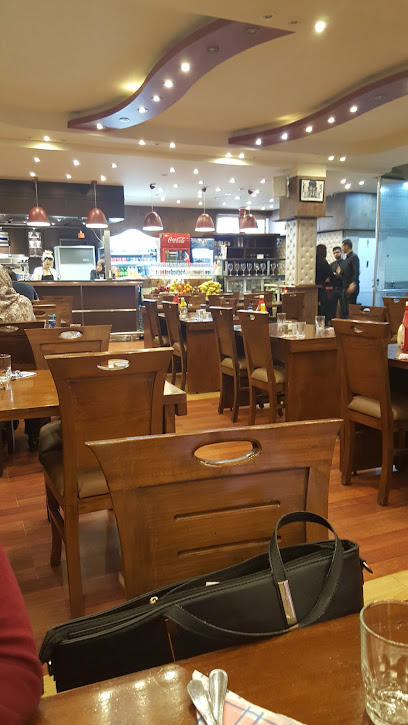
Coralia Restaurant & Fishery
Experience the best fish and chips at Coralia Restaurant & Fishery in Bir El Djir - A true taste of Algeria's coastal cuisine.
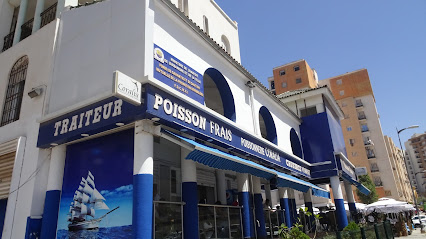
Ambiance Villa
Discover authentic Algerian flavors at Ambiance Villa, Oran's premier dining destination offering an unforgettable culinary experience.
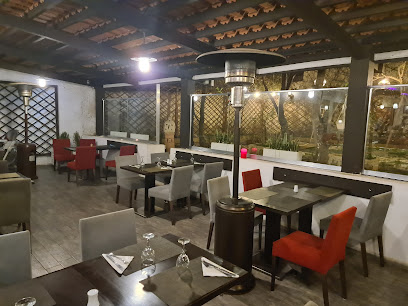
مطعم الباي
Experience authentic Algerian flavors at مطعم الباي in Oran - a culinary gem serving traditional dishes with warmth and hospitality.
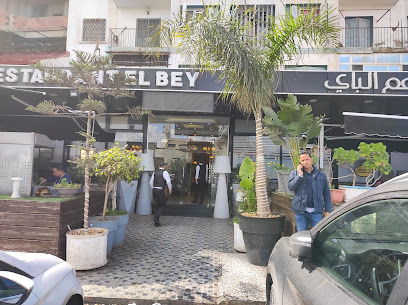
Restaurant le Corsaire
Discover exquisite Algerian and Mediterranean flavors at Restaurant le Corsaire in Oran – a culinary haven awaits!
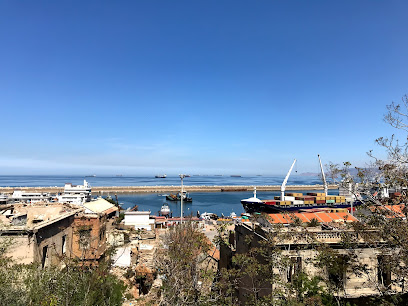
Le Cintra
Discover the flavors of Algeria at Le Cintra – where traditional meets contemporary in an unforgettable dining experience.
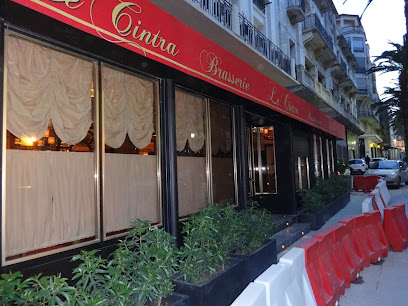
Ex La Frégate (Poissons Frais & Paella)
Experience the best of Algerian seafood at Ex La Frégate - fresh fish and exquisite paella await you.
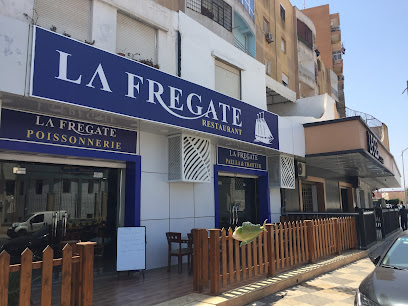
steak house
Discover Oran's culinary gem: The Steak House offers mouthwatering steaks in a cozy atmosphere perfect for all occasions.
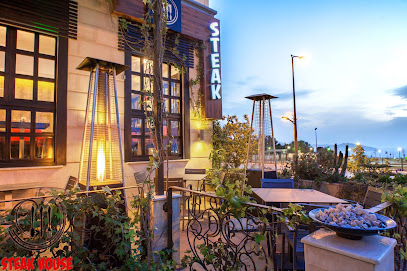
Khayma Beni Chougrane
Experience authentic Algerian cuisine at Khayma Beni Chougrane in Oran - where every meal is a cultural journey.
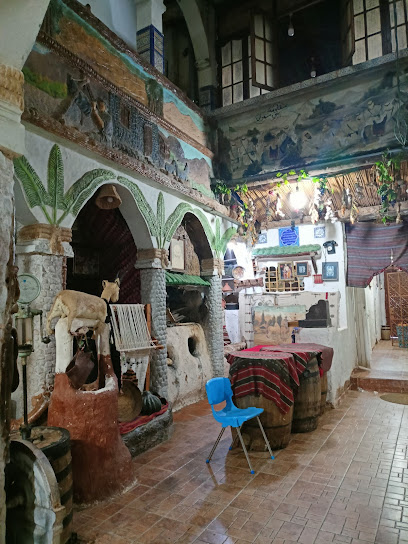
Sunset canastel Restaurant / coffret shop
Discover Sunset Canastel Restaurant in Oran: A blend of exquisite Algerian cuisine and breathtaking sunset views.
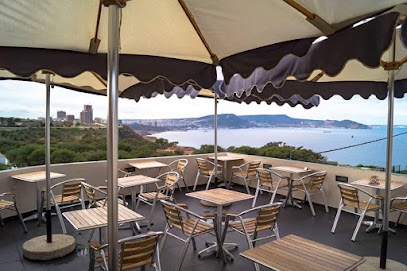
Restaurant St. Tropez
Experience authentic Algerian cuisine at Restaurant St. Tropez in Oran - where local flavors meet delightful ambiance.
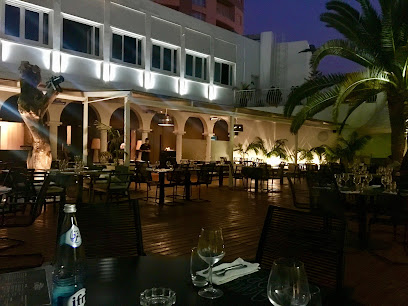
RESTAURANT idaa ( Poissons Frais et Viandes, 1800 et 3000 )
Experience the exquisite blend of Haute French cuisine and Mediterranean flavors at Restaurant Idraa in Oran.
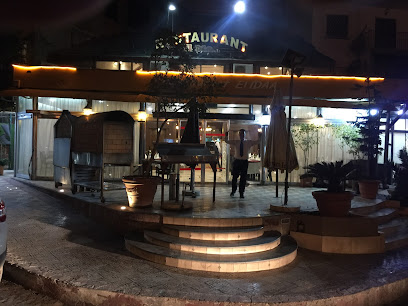
Markets, malls and hidden boutiques
Commercial Center Ritaj Mall
Explore Ritaj Mall in Oran: A shopping haven with diverse brands, dining delights, and family-friendly entertainment options.
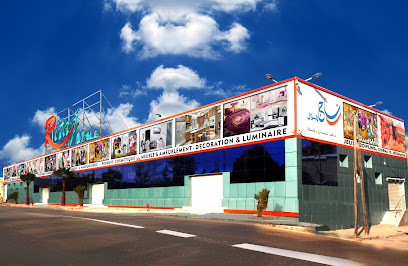
Oran Grand
Discover the vibrant shopping experience at Oran Grand Shopping Mall, where local culture meets modern retail in the heart of Oran.
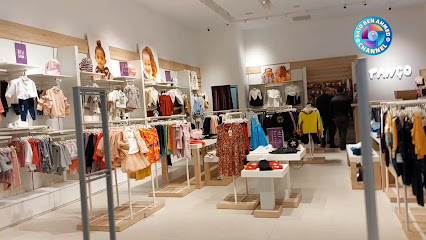
Boutique R&R
Explore Boutique R&R in Oran for the finest selection of women's clothing, blending local style with modern trends for every occasion.
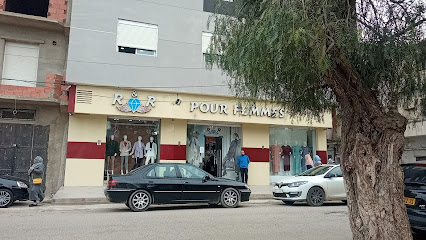
وهران الجزائر
Explore Oran, Algeria's vibrant coastal gem with rich history, stunning architecture, and delicious local cuisine.
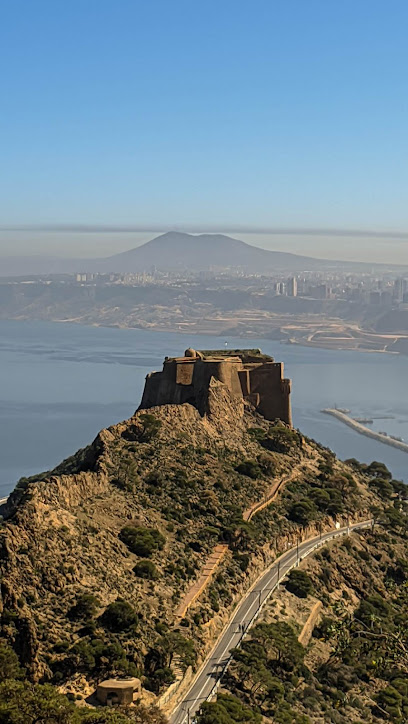
متجر نايكي
Discover the vibrant Nike Store in Oran, offering the latest in sportswear and trendy styles for every athlete and fashion lover.
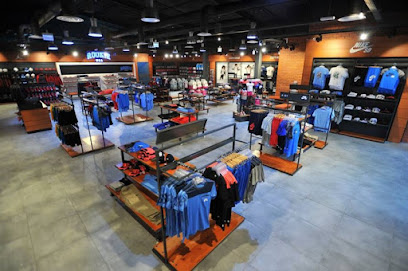
Centre Commercial EL GHARB mall
Discover the heart of Oran at Centre Commercial EL GHARB, a vibrant shopping mall offering unique local finds and international brands.
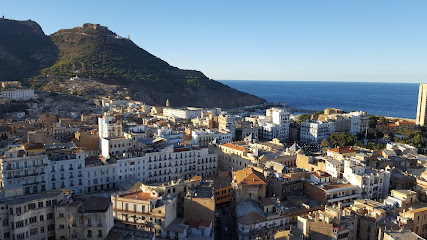
Boutique ELENA
Discover the stylish offerings of Boutique ELENA in Bir El Djir, where fashion meets comfort in every step.
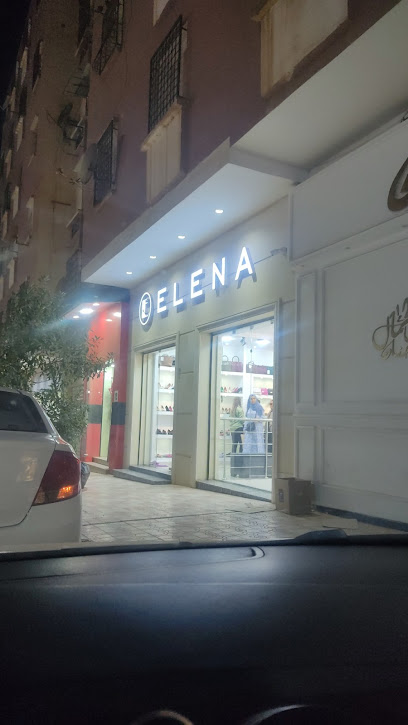
CELIO Magasin De Vetement
Explore CELIO in Oran for stylish men's clothing that blends fashion with affordability, perfect for every occasion.
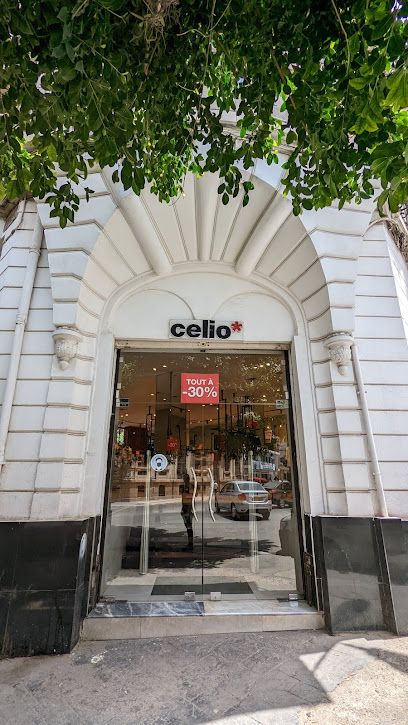
Shop'in Mall Oran
Experience the vibrant shopping scene at Shop'in Mall Oran, where local culture meets international brands in a modern setting.
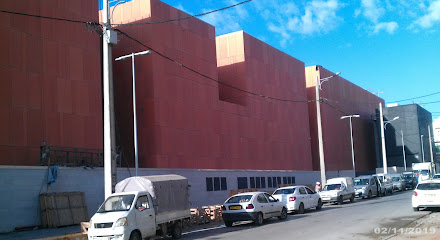
Djow Luxury
Discover the elegance of Algerian fashion at Djow Luxury, where style meets culture in the heart of Oran.
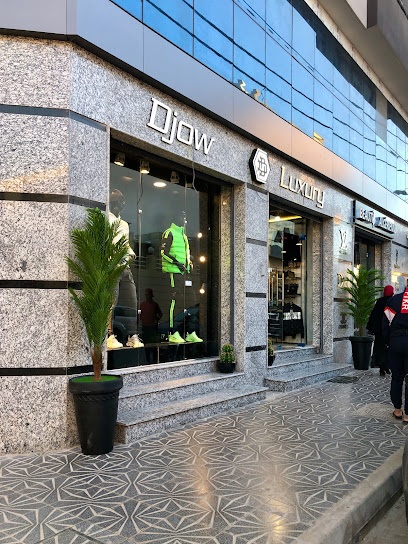
WAVE store
Immerse yourself in men's fashion at WAVE Store in Oran, where style meets local culture for the discerning traveler.
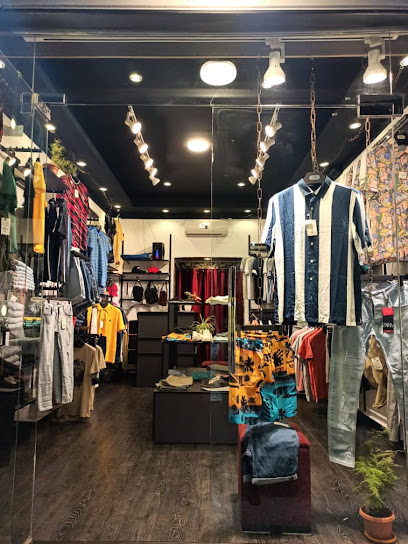
Hirfa concept store
Explore Hirfa Concept Store in Oran for high-quality Algerian gifts and authentic handicrafts that capture the essence of local culture.
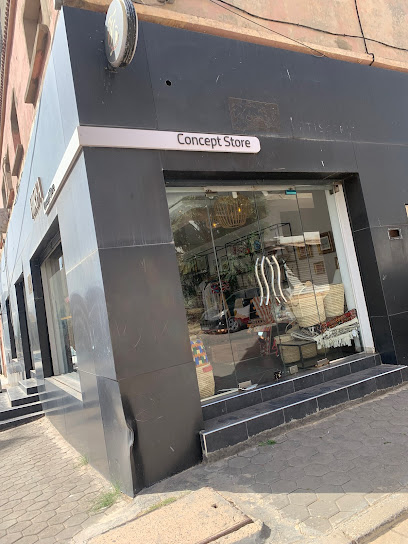
Mon style 31
Discover unique souvenirs and local crafts at Mon Style 31, the premier gift shop in Bir El Djir, offering a taste of Algerian culture.
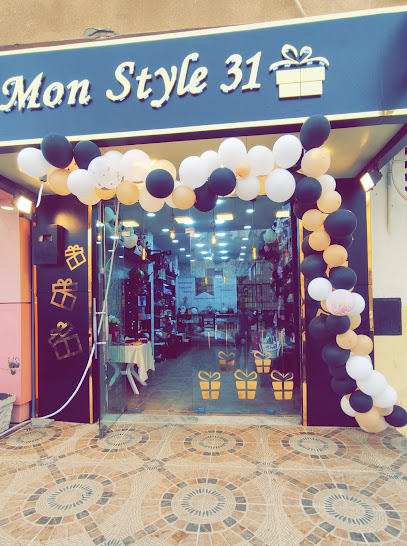
ORANshop
Explore the vibrant fashion scene at ORANshop, a must-visit clothing store in Oran offering unique styles and local designs.

Mina Déco
Explore Mina Déco, Oran's charming gift shop offering unique souvenirs, local crafts, and a touch of Algerian culture.
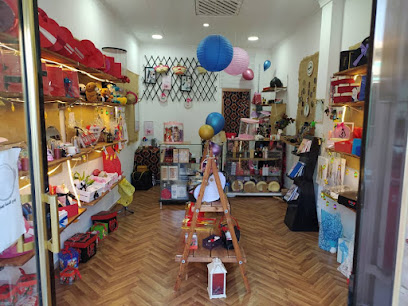
Essential bars & hidden hideouts
Four Points by Sheraton Oran
Discover luxury and comfort at Four Points by Sheraton Oran, the perfect retreat for both business and leisure travelers along Algeria's stunning coastline.
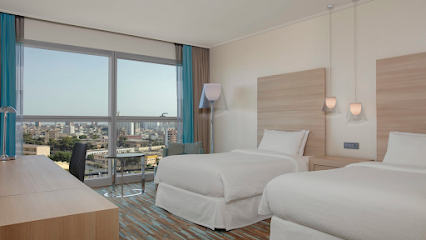
Le Cintra
Discover the authentic flavors of Algeria at Le Cintra, Oran's premier restaurant serving traditional dishes in a warm and inviting atmosphere.
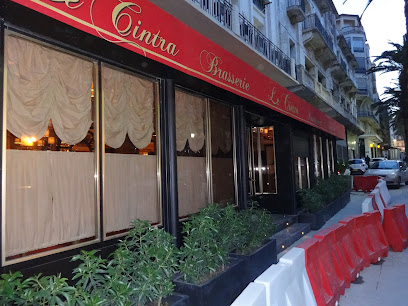
Le QG lounge Oran
Experience local charm and refreshing brews at Le QG Lounge, a delightful tea house in the heart of Oran, perfect for relaxation.
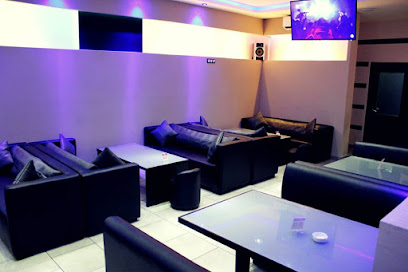
Club gentleman
Discover the lively Club Gentleman, a bar and grill in Bordj El Kiffan offering delicious food, refreshing drinks, and vibrant nightlife.
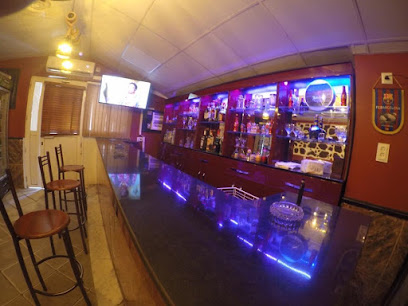
Las Palmas
Experience authentic Algerian cuisine at Las Palmas, where tradition meets taste in the vibrant city of Oran.
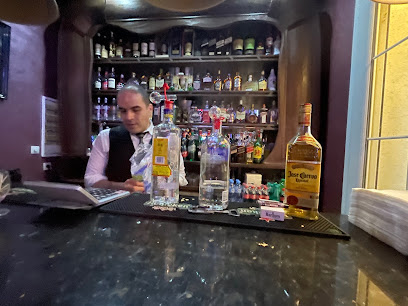
Le modjo lounge
Experience the vibrant flavors of Oran at Le Modjo Lounge, where traditional meets modern in a delightful culinary journey.
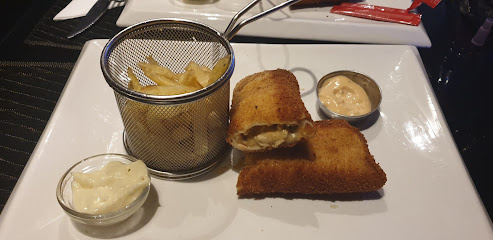
Sky Lounge By Liberté
Discover the chic ambiance and stunning views at Sky Lounge By Liberté, the perfect spot to unwind in Oran's vibrant nightlife.
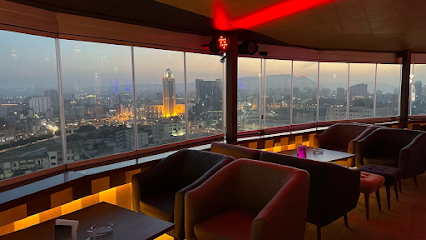
Penelope lounge
Experience the rich flavors of Algerian cuisine at Penelope Lounge, a culinary haven in the heart of Oran, perfect for tourists and locals alike.
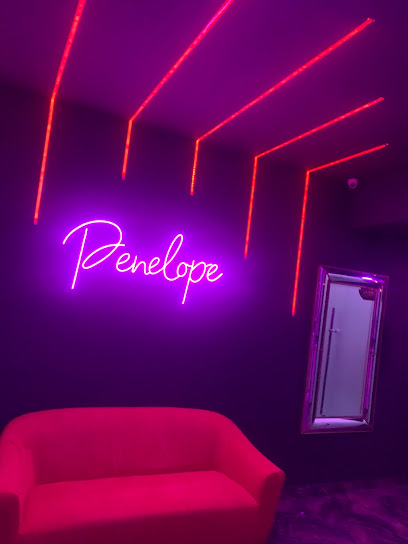
Restaurant El Djazair
Experience the authentic taste of Algeria at Restaurant El Djazair, where traditional dishes and warm hospitality meet in the heart of Oran.
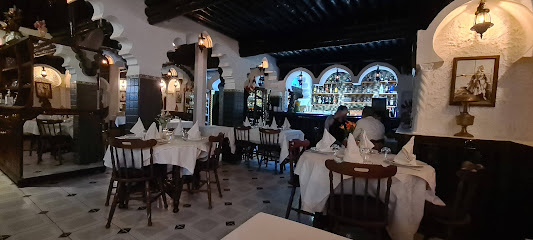
La Voile D'or
Discover La Voile D'or, a vibrant bar in Oran, where local culture meets delightful drinks and a lively atmosphere.

وهران
Discover Oran's lively bar scene, where local flavors and vibrant nightlife fuse to create an unforgettable experience in Algeria's coastal gem.
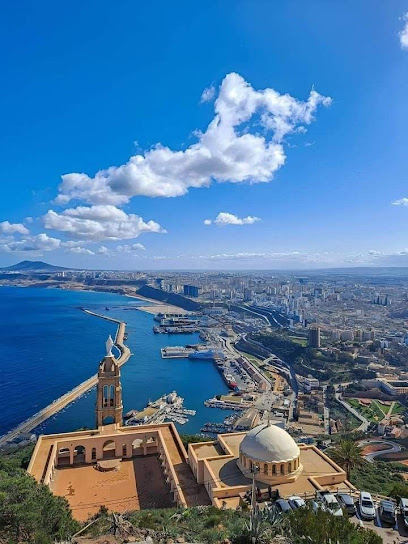
Le 8
Discover the flavors of Algeria at Le 8, a must-visit restaurant in Oran that blends tradition with modern dining in a vibrant atmosphere.

BAR MATELOT
Experience the vibrant atmosphere and local culture at Bar Matelot, a must-visit bar in Oran, Algeria, perfect for relaxation and socializing.

Restaurant Rendez Vous Des Pecheurs
Discover the culinary delights of Rendez Vous Des Pecheurs, a charming lounge in Ain Turck, Oran, with stunning Mediterranean views and fresh seafood.

Local Phrases about Oran Coast
-
- Helloمرحبا
[marhaba] - Goodbyeوداعا
[wadaa'an] - Yesنعم
[naam] - Noلا
[laa] - Please/You're welcomeمن فضلك/على الرحب والسعة
[min fadlak/ala arrahb wasi'a] - Thank youشكرا
[shukran] - Excuse me/Sorryعذرا
[udhran] - How are you?كيف حالك؟
[kayf halik?] - Fine. And you?بخير. وأنت؟
[bikhayr. wa ant?] - Do you speak English?هل تتحدث الإنجليزية؟
[hal tatahadath al'injlizia?] - I don't understandأنا لا أفهم
[ana la afham]
- Helloمرحبا
-
- I'd like to see the menu, pleaseأريد أن أرى القائمة، من فضلك
[uridu an ara alqaimah, min fadlik] - I don't eat meatأنا لا آكل اللحم
[ana la aakul allahm] - Cheers!في صحتك!
[fi sahtak!] - I would like to pay, pleaseأريد أن أدفع، من فضلك
[uridu an adfaa, min fadlik]
- I'd like to see the menu, pleaseأريد أن أرى القائمة، من فضلك
-
- Help!النجدة!
[annajdah!] - Go away!انصرف!
[ansarf!] - Call the Police!اتصل بالشرطة!
[iatisil bialsurata!] - Call a doctor!اتصل بالطبيب!
[iatisil bialtibib!] - I'm lostلقد ضللت الطريق
[lqad dalalt altariq] - I'm illأنا مريض
[ana mareed]
- Help!النجدة!
-
- I'd like to buy...أود أن أشتري...
[awadu an ashtari...] - I'm just lookingأنا فقط أتفرج
[ana faqat atfarrag] - How much is it?بكم هذا؟
[bikam hadha?] - That's too expensiveهذا غالي جدا
[hadha ghali jiddan] - Can you lower the price?هل يمكنك خفض السعر؟
[hal yumkinuk khafd alsu'r?]
- I'd like to buy...أود أن أشتري...
-
- What time is it?كم الساعة؟
[kam alsaa'ah?] - It's one o'clockالساعة الواحدة
[alsaa'ah alwahidah] - Half past (10)العاشرة والنصف
[al'ashirah walnisf] - Morningالصباح
[assabah] - Afternoonالمساء
[almasa'] - Eveningالليل
[allayl] - Yesterdayالأمس
[al'ams] - Todayاليوم
[alyawm] - Tomorrowغدا
[ghadan] - 1واحد
[wahid] - 2اثنين
[ithnayn] - 3ثلاثة
[thalatha] - 4أربعة
[arba'a] - 5خمسة
[khamsah] - 6ستة
[sittah] - 7سبعة
[sab'ah] - 8ثمانية
[thamania] - 9تسعة
[tis'ah] - 10عشرة
[asharah]
- What time is it?كم الساعة؟
-
- Where's a/the...?أين ...؟
[ayn ...?] - What's the address?ما هو العنوان؟
[ma huwa al'ainan?] - Can you show me (on the map)?هل يمكنك أن تريني (على الخريطة)؟
[hal yumkinuk an tureeni (ala alkharitah)?] - When's the next (bus)?متى يأتي الحافلة القادمة؟
[mata ya'ti alhafilat alqadimah?] - A ticket (to ....)تذكرة (إلى ...)
[tadhkirat (ila ...)]
- Where's a/the...?أين ...؟
History of Oran Coast
-
The history of Oran Coast dates back to the 10th century BC when the Phoenicians established trading posts along the Mediterranean. These early settlers laid the foundation for Oran's long-standing maritime culture, trading goods such as glass, purple dye, and textiles.
-
Oran came under Roman rule around the 1st century AD. The Romans expanded the city's infrastructure with roads, aqueducts, and fortifications. The remains of Roman architecture, such as the ruins of baths and villas, can still be seen in the region.
-
In the 8th century, the Islamic conquest brought significant change to Oran. The city became part of the Umayyad Caliphate, and later the Fatimid Caliphate. During this period, Oran flourished as a center of Islamic learning and culture, with mosques and madrasas becoming prominent landmarks.
-
During the 11th and 12th centuries, the Almoravid and Almohad dynasties ruled Oran. These Berber Muslim dynasties fortified the city and fostered a thriving economy based on trade with the Iberian Peninsula and the rest of North Africa.
-
In 1509, Spanish forces captured Oran, and it remained under Spanish control for nearly three centuries. The Spanish influence is evident in the architecture of the Santa Cruz Fort and other colonial structures that still stand today.
-
In 1708, the Ottomans took control of Oran, ushering in a period of prosperity and growth. The Ottomans improved the city's defenses and infrastructure, making it a key naval base. The presence of Ottoman architecture, such as the Pasha Mosque, reflects this era.
-
Oran became part of French Algeria in 1831, marking the beginning of over a century of French rule. The French introduced modern urban planning, building wide boulevards, public squares, and European-style buildings that still characterize much of Oran's cityscape.
-
During World War II, Oran played a strategic role in the Allied operations in North Africa. The city was a critical supply and logistics hub, and the famous Operation Torch, the Allied invasion of French North Africa, saw significant activity in Oran.
-
Oran was a focal point during the Algerian War of Independence (1954-1962). The city witnessed numerous uprisings and violent clashes between Algerian nationalists and French forces. The war culminated in Algeria gaining independence in 1962.
-
Today, Oran is a vibrant metropolis that blends its rich historical tapestry with contemporary culture. The city is a hub for music, particularly Rai, which originated here. Oran's historic sites, bustling markets, and coastal beauty continue to attract visitors from around the world.
Oran Coast Essentials
-
Oran is accessible through Oran Es Sénia Airport (ORN), which offers both domestic and international flights. The airport is about 12 kilometers from the city center. From the airport, you can take a taxi or a shuttle bus to your accommodation. Another option is to fly into Algiers Houari Boumediene Airport (ALG) and then take a domestic flight or a train to Oran. Train services from Algiers to Oran are operated by the national railway company, SNTF, and provide a scenic route along the coast.
-
Oran has a variety of transportation options. Taxis are widely available and relatively affordable; make sure to agree on a fare beforehand if the taxi does not have a meter. The city also has a bus network that covers most areas, including tourist attractions. Car rentals are an option for those who prefer to explore at their own pace, but be aware that traffic can be heavy, and driving habits may differ from what you're used to. For short distances, walking is often the best way to get around, especially in the city center.
-
The official currency in Algeria is the Algerian Dinar (DZD). Credit cards are accepted in larger hotels, restaurants, and shops, but it is advisable to carry cash, especially when visiting smaller establishments or local markets. ATMs are widely available in Oran, and it is easy to withdraw cash using international debit or credit cards. Make sure to inform your bank of your travel plans to avoid any issues with card transactions.
-
Oran is generally safe for tourists, but it is important to take standard precautions. Avoid walking alone at night in unfamiliar areas and be cautious in crowded places where pickpocketing can occur. Some neighborhoods, such as Sidi El Houari and the outskirts of the city, have higher crime rates, so it is best to avoid these areas, especially after dark. Always keep an eye on your belongings and avoid displaying valuables openly.
-
In case of emergency, dial 14 for the police and 17 for medical emergencies. Oran has several hospitals and clinics where you can seek medical attention. It is highly recommended to have travel insurance that covers medical emergencies. For minor health issues, pharmacies are readily available in the city, and many pharmacists speak English or French. Keep a list of emergency contacts and the address of your embassy or consulate handy.
-
Fashion: Do dress modestly, especially when visiting religious sites. Avoid wearing revealing clothing. Religion: Do respect local customs and traditions. When visiting mosques, cover your head and remove your shoes. Public Transport: Do be respectful and give up your seat to elderly passengers. Don’t eat or drink on public transport. Greetings: Do greet people with a handshake. A friendly 'Salam' (peace) is also a common greeting. Eating & Drinking: Do try local delicacies and accept food offerings graciously. Don’t refuse hospitality, as it is considered impolite.
-
To experience Oran like a local, visit the local souks (markets) where you can buy fresh produce and traditional Algerian goods. Engage with locals, as they are often friendly and willing to share stories about the city's history and culture. Don’t miss visiting Santa Cruz Fort, which offers panoramic views of the city and the Mediterranean Sea. For a unique experience, attend a Rai music concert, as Oran is the birthplace of this popular Algerian music genre.
Trending Landmarks in Oran Coast
Nearby Cities to Oran Coast
-
Things To Do in Tlemcen
-
Things To Do in Oujda
-
Things To Do in Almeria
-
Things To Do in Murcia
-
Things To Do in Alicante
-
Things To Do in Algiers
-
Things To Do in Málaga
-
Things To Do in Valencia
-
Things To Do in Ronda
-
Things To Do in Chefchaouen
-
Things To Do in Gorham's Cave Complex
-
Things To Do in Catalan Bay
-
Things To Do in Europa Point
-
Things To Do in St. Michael's Cave
-
Things To Do in Tetouan












